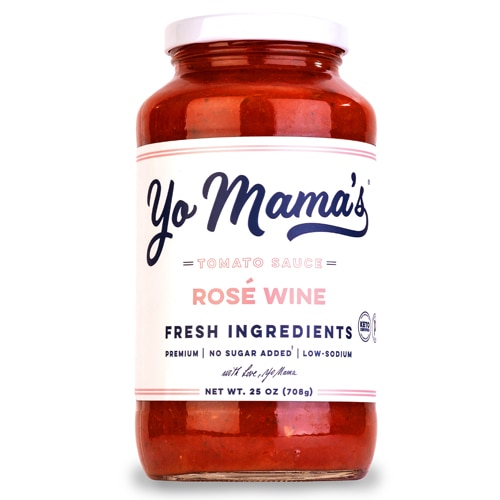[vc_row][vc_column][vc_column_text]Munching on pretzels or dipping into a bag of chips can satisfy your cravings. But indulging in those salty treats might leave you feeling stressed, according to new research.
Mice that consume salty foods see their stress hormones spike by 75%, according to a
new study out of the University of Edinburgh in Scotland.
The research suggests yet another reason why Americans should
reduce their sodium intake.

Negative effects of too much sodium in your diet
Toby Amidor, a registered dietitian and author of “The Family Immunity Cookbook,” says about 10% of the population is “salt sensitive,” meaning a high-sodium diet puts them at greater risk of developing high blood pressure.
“Too much sodium in the diet can be another factor that may help contribute to heart disease and stroke,” she says. “In addition, when you take in too much sodium, it can lead to calcium losses, where calcium may be pulled from the bone.”
And yet despite such potential health risks, almost everybody -- 90% of Americans 2 years old or older --
consumes too much sodium, according to the Centers for Disease Control and Prevention.
Foods high in sodium
Unfortunately, it is depressingly easy to fall prey to taking in too much sodium on a daily basis.
Most of the sodium in our diet comes from the added salt found in abundance in p
ackaged and prepared foods, Amidor says.
Many Americans likely are unaware of just how much sodium is in these foods. In many cases, foods high in sodium do not necessarily taste salty.
More than 40% of the sodium people consume comes from just 10 types of foods,
according to the CDC. They are:
- Breads and rolls
- Pizza
- Sandwiches
- Cold cuts and cured meats
- Soups
- Burritos and tacos
- Savory snacks, such as chips, popcorn, pretzels, snack mixes and crackers
- Chicken
- Cheese
- Eggs and omelets
To determine the amount of sodium in a food, check the Nutrition Facts label on the packaging. Sodium content is listed on a per-serving basis and measured in milligrams.
The federal government's 2020-2025 Dietary Guidelines for Americans recommends that each person should consume
less than 2,300 milligrams of sodium each day. That is “equivalent to a teaspoon of salt,” Amidor says.
In reality, the typical American consumes more than 3,400 milligrams of sodium daily.
Reducing sodium intake
The CDC says that each year, high blood pressure contributes to about 500,000 deaths in America. So,
reducing your sodium intake in 2023 and beyond very well could save your life.
Fortunately, there are many ways to reduce sodium intake.
Overall, about 70% of the sodium we consume comes from processed or restaurant foods, the CDC notes. So, cutting back on or eliminating these foods can go a long way toward lowering sodium consumption to healthful levels.
If you use a lot of salt when cooking at home, look for alternatives to a high-sodium diet that will still appeal to your tastebuds.
"There are many ways to add flavor without adding salt to the food you prepare," Amidor says.
She suggests the following:
Use fresh herbs and spices.
Instead of using salt to flavor food or spices like garlic salt and onion salt, choose fresh
herbs and spices. These have little-to-no sodium, but offer "a ton of flavor," Amidor says.
Choose low-sodium varieties of foods.
Soy sauce, canned beans and vegetables, and
tomato sauce can be found in low-sodium and no-added-sodium varieties. "Read the labels and compare, so you can make the most informed decision," Amidor says.
Make foods from scratch.
Sometimes, whipping up your own version of a foods and ingredients can help decrease the sodium you consume. For instance, try
homemade salad dressings or homemade vegetable juices. "This way, you have better control over the ingredients," Amidor says.[/vc_column_text][/vc_column][/vc_row][vc_row][vc_column][vc_text_separator title="Featured Products" border_width="2"][vc_row_inner equal_height="yes" content_placement="middle" gap="35"][vc_column_inner width="1/3"][vc_single_image image="163909" img_size="full" alignment="center" onclick="custom_link" img_link_target="_blank" css=".vc_custom_1670885997454{padding-right: 7% !important;padding-left: 7% !important;}" link="https://www.vitacost.com/simple-truth-organic-gluten-free-vegetable-broth-low-sodium"][/vc_column_inner][vc_column_inner width="1/3"][vc_single_image image="163907" img_size="full" alignment="center" onclick="custom_link" img_link_target="_blank" css=".vc_custom_1670886014690{padding-right: 7% !important;padding-left: 7% !important;}" link="https://www.vitacost.com/frontier-natural-products-organic-all-purpose-seasoning-blend-salt-free"][/vc_column_inner][vc_column_inner width="1/3"][vc_single_image image="163908" img_size="full" alignment="center" onclick="custom_link" img_link_target="_blank" css=".vc_custom_1670886032028{padding-right: 7% !important;padding-left: 7% !important;}" link="https://www.vitacost.com/saltme-potato-chips"][/vc_column_inner][/vc_row_inner][/vc_column][/vc_row]




